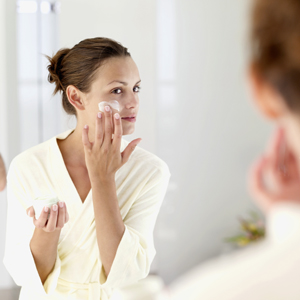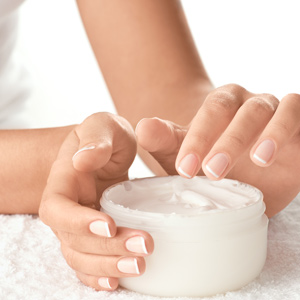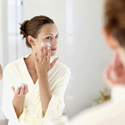Don’t Fall Prey To So-called Youth Elixirs
The fight against aging is nothing unique to our time.
Ponce de Leon landed in the New World and embarked upon a fruitless quest to find the Fountain of Youth. The first Chinese emperor employed alchemists to concoct mercury elixirs to grant him immortality.

I recently read online about a spa that lets snakes crawl over your face. The contractions of the slithering muscles apparently smooth out wrinkles. Another spa in North Carolina will have live carp eat the dead skin off your feet for $50.
It is natural to desire a more healthy and rested look. It reflects vitality and good health, features that increase our sex appeal and success in life. Unfortunately it also is natural to fall prey to those who promise us cosmetic deliverance from the ravages of aging. The average consumer is faced with a bewildering choice of skin care products and is not equipped with the background to discern the snake oils from what is worth their dollar. Ideally, this is where dermatologists should position themselves: as an unbiased party and advocate to help their patients choose the right products.
The Cosmeceuticals Trend
Cosmeceuticals have become the latest rage in the medical profession. But what is a cosmeceutical? It is not a term recognized by the FDA and therefore not subject to any regulatory body to protect consumers.
The term sneakily implies pharmaceutical-grade quality, safety and efficacy of the product. It is a genius stroke of marketing. Almost every field of medicine, especially plastic surgery and dermatology, are embracing cosmeceutical as a way to off set declining reimbursement. One of my favorite dermatologists, Dr. James Spencer, once remarked, "A small amount of science can translate into a profitable industry in the unregulated universe of cosmeceuticals."
The Skin Care Industry
I have grown increasingly worried my profession is jeopardizing its trust with patients by endorsing so many unproven products. A quick stroll through any dermatology conference is starting to look more like the product counters at the mall and not a scientific convention. The luxury skin care market is booming and its tentacles are far reaching. I know OB-GYNs and even orthopedists who are getting onboard the gravy train.
Those who express skepticism of these brands at conferences are met with scorn. Membership dues alone no longer solely fund our professional organizations. I’m told from the industry "Patients are going to buy it somewhere. Why not from you?"
Some otherwise good dermatologists even justify it to themselves with statements like "Dermatologists recommend it, so patients love it." not recognizing the circular reasoning in this justification. With everybody just going along with this, it makes one want to stand up and shout, "The emperor has no clothes!"
This problem will only get worse, given the recent changes in the FDA sunscreen guidelines. Now any product with a sunscreen in it can be labeled as "anti-aging." Since sun damage really is the worst ravager of your skin, perhaps appealing to people’s vanity will help make a dent in our ongoing skin cancer epidemic.
Youth Skin Care Products
Almost every month a new berry or seed from some foreign country is touted as the new "It" ingredient. The hard truth is that many of these exotic sounding ingredients are just old-fashioned bunk.
Most of this research is not done on humans but in complex molecular models and test tubes. I am suspicious some of it is just flat-out fabricated. Most of the studies I see promote antioxidants and growth hormones in very well controlled tissue culture samples. That data simply cannot be extrapolated to the mysterious dynamics of live human skin. Most of these substances cannot even penetrate the skin.

When companies do undertake studies on humans, they often use markers of minuscule improvements that are not even visible to the human eye. So what if you have a 15.4 percent increase in collagen if nobody can see it? I’ve also seen many obvious Photoshopped "before and after" pictures showcased as proof of efficacy. And I’ve actually seen some promotional material where you cannot tell the "before" from the "after."
It is difficult to avoid the conclusion that these claims are intentionally false, exaggerated or misleading for commercial purposes. When sound results are obtained, it generally is due to the moisturizers and sunscreens included in the product.
One of my favorite farces is labeled "DNA Repair Cream." I don’t want anyone monkeying around with my DNA, especially a cosmeceutical company. It’s a laughable concept that some cream would intrinsically know how to repair your specific DNA, but a very well-known company promotes it.
"Growth serums" and claims of "Stem Cell" technology deserve similar skepticism.
The antioxidants have been the darlings of mankind now for 20 years. When you hear the word antioxidant, it is usually followed by oversimplification and hype. Its models are well elucidated in the lab but practically not measurable in the human body to any useful degree. The human body is much more complicated than a test tube.
How do we know what levels are desirable? What unintended consequences do they have? I remember 15 years ago when many cardiologists were prescribing high dose antioxidants and vitamin E. After studies raised the possibility of unforeseen harm with this practice, the American Heart Association decided to wait until better research is available before recommending them.
Hopefully dermatology is now poised to take a second look at indiscriminate antioxidant mega dosing. A speaker at this year’s American Academy of Dermatology addressed this topic: "There are only limited data for some antioxidants showing that when topically applied, these agents can protect against photodamage. There is even less evidence demonstrating value for repairing previously damaged skin."
The miracles of antioxidants are pounded into our heads by the medical and food industrial complex. We’ve become like the mindless sheep from George Orwell’s famous book "Animal Farm": "Antioxidants good. Free radicals baaaaad."
The real ingredients behind quality anti-aging products are quite dull and haven’t changed significantly in a decade or more. And the soundest advice reeks of puritanical boredom: don’t smoke and wear lots of sunscreen — lots of sunscreen. But this is not as sexy as exotic berries and talk of stem cells.
Also, if you are not wearing a good sunscreen every day, you are throwing away your money and hope on products. It reminds me of a friend who chain-smokes but gobbles down expensive vitamins to ward off cancer.
Youth Skin Care Product Tips
Here are a few tips for anyone looking at purchasing a cosmeceutical:
- If you feel like you are being sold something, you probably are.
- Taking care of your skin and looking your best need not be expensive.
- If it sounds too good to be true, it probably is.
- Products that make statements invoking mumbo jumbo claims are usually just an expensive moisturizer (especially avoid anything that claims to be "a face lift in a bottle").
- One company does not have any unique proprietary anti-aging magic beans.
- Ingredients that truly work are available across a spectrum of products.
- And lastly, if the person selling it to you doesn’t look like they benefited from it, don’t buy it.

